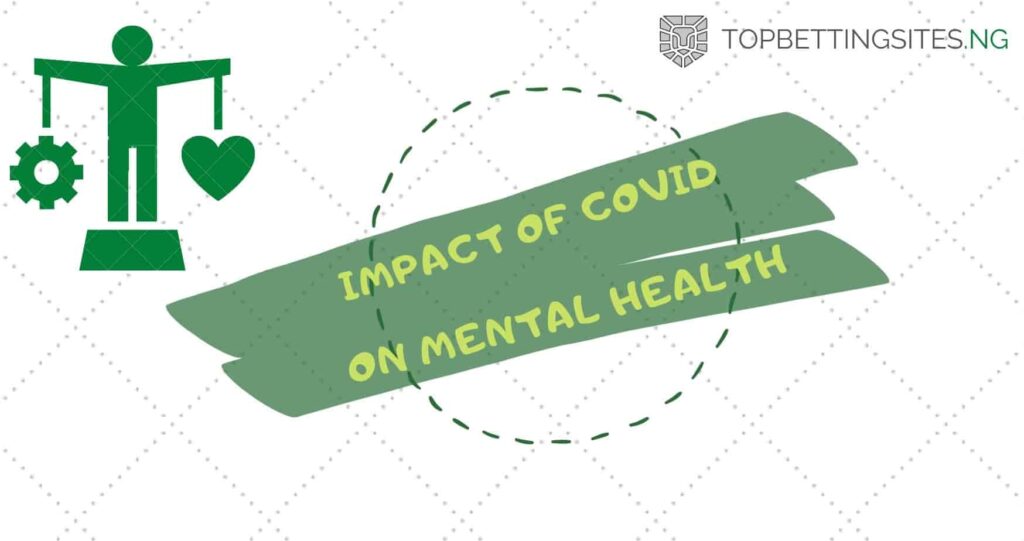As a result of the COVID-19 outbreak and pandemic, people were forced to live in extreme social isolation due to the COVID-19 outbreak and pandemic, which also severely restricted their ability to engage in sports and other activities.

The COVID-19 Outbreak
The COVID-19 pandemic, one of the largest worldwide emergencies in recent memory, has seriously impacted economies, societies, and health systems. Many people have perished or experienced job loss. Communities and families have become estranged and tense. Young people have lost out on socializing and learning opportunities. Companies have filed for bankruptcy. Millions of people are now living in poverty.
People’s mental health has been significantly impacted as they deal with these social, economic, and health effects. Many of us experienced increased anxiety, but for some of us, COVID-19 has exacerbated much more severe mental health issues. Many people have reported experiencing psychological distress as well as signs of anxiety, depression, or post-traumatic stress disorder.
The Sports Industry: Brace for Impact
Sports events ranging from minor league games to elite competitions were canceled as COVID-19 spread globally in late 2019. This move was justified because close contact between athletes and spectators could facilitate the spread of the coronavirus. To prevent athletes from bringing the virus back to their home nations, the pandemic also caused the postponement of the 2020 Tokyo Olympics, which was set to be the year’s major international sporting event. Of course, there were still substitutes for sports fans, such as betting on sports. For example, to check out possible betting options in Kenya, visit bet-helper.ke and choose your perfect bookmaker.
And now, back to the pandemic. Even though COVID-19 poses a particular risk to the elderly and other susceptible groups, it can still kill perfectly healthy people, including professional athletes. Furthermore, scientists are concerned that COVID-19 may present long-term risks to lung and heart health, which could have disastrous effects on an athlete’s career.
High costs were associated with the sports stoppage for those who had devoted their lives to winning.
Athletes Were Hit Hard
Olympic legend or not, a worldwide pandemic such as the coronavirus is not good for anyone’s mental health, but specialists point out that elite athletes face unique challenges. Their emotions might range from fear and anger to sadness and even grief due to the competition’s postponement and cancellation. Coping is a challenge in and of itself.
A lot of well-known sports stars, like Michael Phelps, have admitted significant shifts in their mental health. Phelps has talked about facing a depression so severe that he wasn’t sure he would ever be able to overcome it.
Amid the COVID-19 pandemic, Olympians and Paralympians have experienced a loss of familiar routines and shifted from anticipated opportunities to uncertainty. Positive or negative new significance was placed on the usual sources of stress or support, such as families, friends, work, housing, relationships, and schools. As long as things are uncertain, pre-existing mental health conditions could get worse.
Different athletes have different mental health depending on the kind of sports they play. Research from the past has shown that elite athletes who play team sports are more likely than those who play individual sports to experience depressive symptoms.
While gyms, pools, and other sports facilities were closed, runners and cyclists could still train relatively easily — they could still go for a long run or bike ride — other athletes who were barred from courts, rinks, and other facilities were more negatively impacted by the pandemic’s mental health effects.
For these professionals, the pandemic was also causing financial anxiety: 71% of them said they were concerned about getting paid during the pandemic, and 47% of the athletes who received sponsorship compensation saw a decline in paid opportunities due to the COVID-19 restrictions.
The Effects of Isolation on Mental Health
No one could have predicted how the pandemic has affected mental health around the globe. We look at four of the biggest effects and what we’ve learned about mental health.
😈 Fear of the Unknown
The early months of the crisis were probably the most intense for these negative feelings because of the 24-hour media coverage and regular updates on the number of people who have got the disease and the number of patients who have died heightened understandable personal fears. It was impossible to predict when people would feel as safe and secure in public as they did prior to the pandemic, even with the introduction of vaccines.
😈 Loneliness
Governments implemented lockdowns and other social distancing measures as COVID-19 spread throughout nations and communities. While they might have effectively reduced the spread of the disease, they also deprived individuals of essential human interaction. Given the clear links between significant mental illnesses like depression and loneliness, these dislocation-related feelings were sure to have a devastating effect.
The team environment is crucial for many athletes. Studies indicate that team training reduces pain for athletes while also improving performance. Even the most resilient athletes may experience significant mental strain when they abruptly switch to solo exercise because it can be painful, frustrating, and lonely.
😈 Financial Concerns
According to the World Economic Forum, the COVID-19 pandemic in 2020 caused 114 million people to lose their jobs. However, new strains like Delta and Omicron would always surface, ensuring that COVID-19 dominated the world economy for several years, just as soon as it appeared that the world was beginning to recover. We still don’t fully understand or quantify the effects of this financial catastrophe, which is far worse than the global financial crisis of 2008.
😈 Lack of Mental Health Help
As the crisis worsened, access to mental health services became a real worldwide issue. According to research conducted by the World Health Organization, even as the demand for critical mental health services increased, 93% of countries worldwide reported that the pandemic had interrupted or stopped providing those services.
Every Cloud Has a Silver Lining
The depth and scale of this mental health crisis should not be understated, but the international community has also responded with incredible resiliency. Governments, medical professionals, and regular people have all learned important lessons about mental health from the pandemic that should stick with them long after it is over. Additionally, the pandemic has improved people’s knowledge of how to take care of their mental health practically.
In the post-COVID world, we can endeavor to preserve elements of personal control, structure, and a minimal amount of anxiety-inducing distractions in everyone’s daily lives. By allowing workers to attain a better work-life balance by spending more time at home and less time complaining about their daily commute, lockdowns have also taught businesses worldwide to implement more flexible working practices.
Addressing Athletes: Tips to Overcome Your Mental Aftermath of COVID
✅ Don’t Be Hard on Yourself
Quit being so critical of yourself. Many people were reporting a rise in depressive symptoms as a result of COVID-19. In addition to facing the same struggles as everyone else, athletes also had to worry about having their purpose taken away from them. You must find another way to stay motivated every day during this time. You should look for healthy hobbies or pastimes that you can engage in during this troubling time.
✅ Therapy Helps
Giving yourself therapy sessions is a fantastic thing you can do with your extra time during personal or global crises. To stay in peak mental condition for their sport, athletes can greatly benefit from counseling. However, it can also be a means of receiving support while navigating the emotional roller coaster that comes with being an athlete. You can talk about your goals and aspirations for the future and how to get there in therapy. You can rediscover your purpose with the aid of therapy. It can also be a means of receiving expert assistance during a very challenging period, as COVID-19 proved to be.
Conclusion
The COVID-19 pandemic has had a complex and wide-ranging impact on athletes’ mental and emotional well-being. In the COVID-19 era, athletes’ mental health outcomes could have been improved through active use of healthy coping mechanisms, continued access to training facilities and mental health professionals, and increased social interactions with coaches and teammates.



